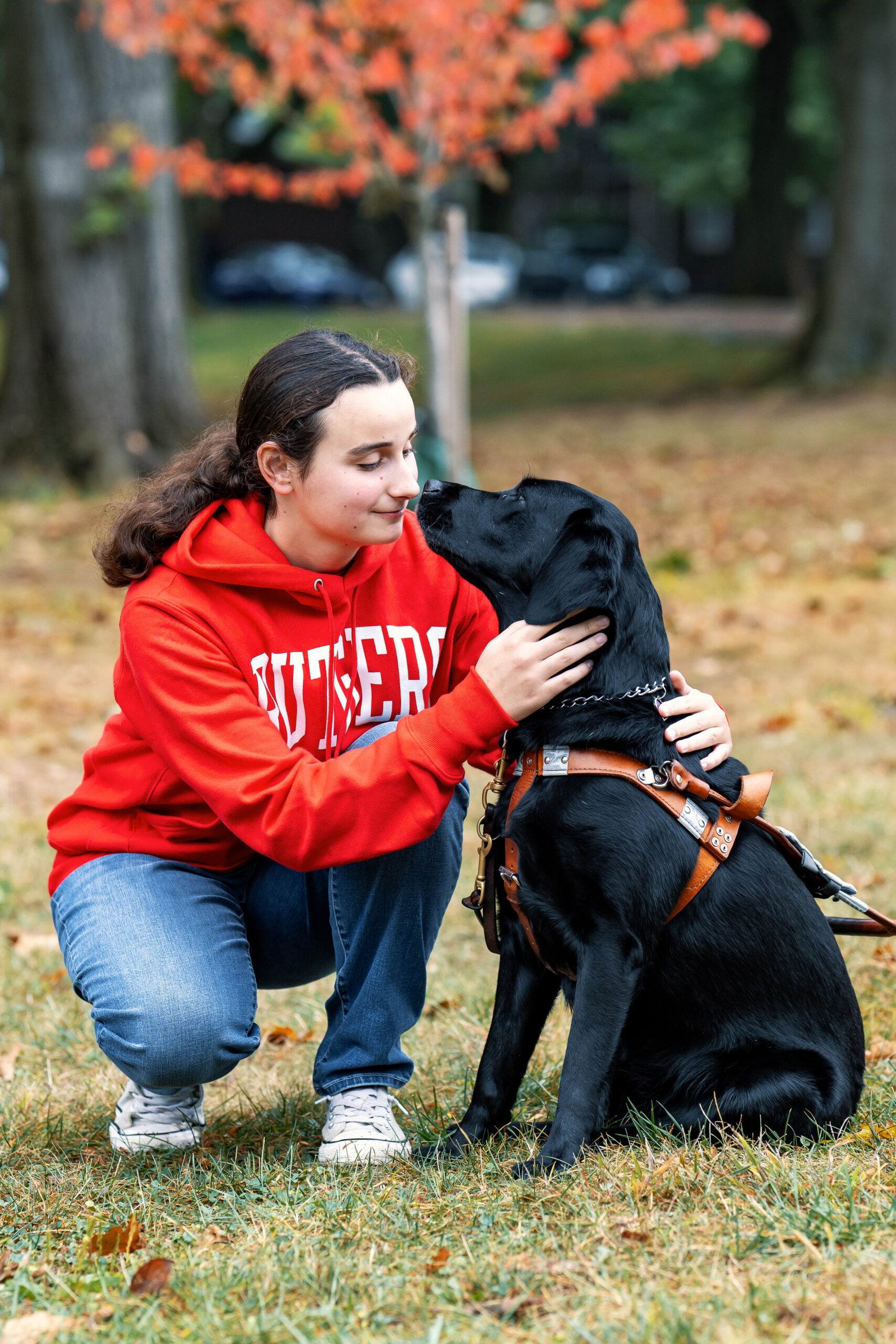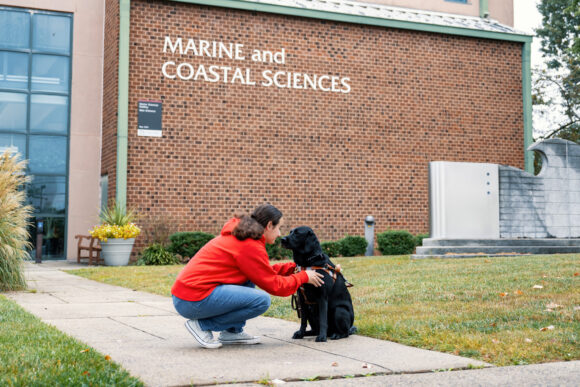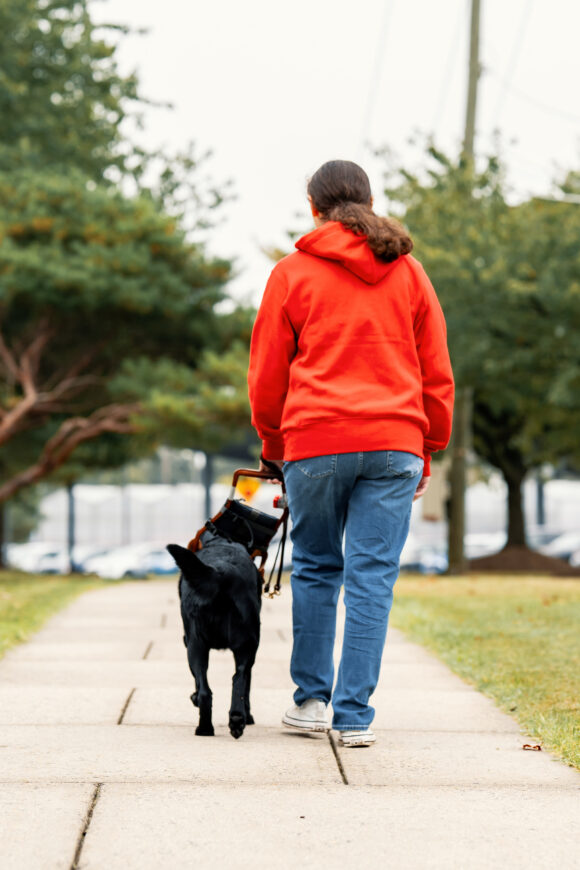
Transfer Student Angelina Shanley and her dog guide, Joy. Photo credit: OPOC.
On the outside, Angelina Shanley is a transfer student from upstate New York with a seeing eye dog. In her heart, though, she’s an environmental conservationist – more specifically, an ocean and marine life conservationist. Shanley was studying environmental science at Siena College, outside Albany, when, like many first-year students, she decided to change majors.
“I realized I wanted to go into marine biology, and I knew that Rutgers was a great school for experiential learners,” said Shanley. “I’m a hands-on learner and I learn best by doing things.”
Shanley is already a great fit at the Rutgers School of Environmental and Biological Sciences, where curriculum is as “hands-on” as it gets, and the school invests heavily into experience-based education.

Angelina Shanley and her dog guide, Joy. Photo credit: OPOC.
Shanley is diving straight into marine biology and is excited for the immediate introduction to research. She’s already on the pathfinding team for the Center for Ocean Observing Leadership’s Slocum Glider Autonomous Underwater Vehicle, which the school hopes to be the first to send around the world.
“It’s like an underwater robot,” said Shanley. “I’m helping the team by creating a blog that will provide updates on the mission and ensure that it is in accessible format.”
The applications for such projects are of endless depth. Shanley hopes to take what she learns into conservation work.
“Once I started learning about marine ecosystems and the threats they face, I wanted to go into a field to make positive change and prevent more damage,” said Shanley. “I’m really fascinated by coral reefs, which are very endangered. A combination of coastal development and rising sea temperatures. They take thousands of years to form. Imagine a thousand years of geological history erased.”
A welcome change
There’s been a lot of changes in Angelina Shanley’s life that last two years. She underwent two major transitions by going away to college twice.
“Coming to Rutgers was very jarring at first. My first school was a total of 4,000 people,” said Shanley. “It was a big transition, but I embraced it. I really like how diverse it is and how many activities there are for students.”

Angelina Shanley and her dog guide, Joy, navigating the George H. Cook campus. Photo credit: OPOC.
“The bus systems can be a lot. I can’t drive or anything so having that freedom is great. I can just take the bus.”
One of Shanley’s first tasks was joining the seeing eye puppy-raising club, which has 100 new members this year. They teach the puppies basic obedience and take them on exposure outings.
“It’s a very lovely mission to get involved in,” said Shanley, whose former guide dog retired last year, with another coming with her to New Jersey. “I’m biased because I wouldn’t have my dog if not for clubs like this. It’s wonderful to see the dogs grow and become matched.”
Rutgers University’s accessible infrastructure is a welcome change. It’s a point of pride for the university and the state more broadly.
“The layout here is accessible because there’s a lot of crosswalks and sidewalks,” said Shanley. “The bus system is a big adjustment. I can’t drive or anything so having that freedom is great. I can just take the bus. If you need help with something, the accessibility office is always there and they’re great.”

